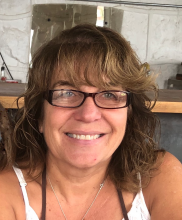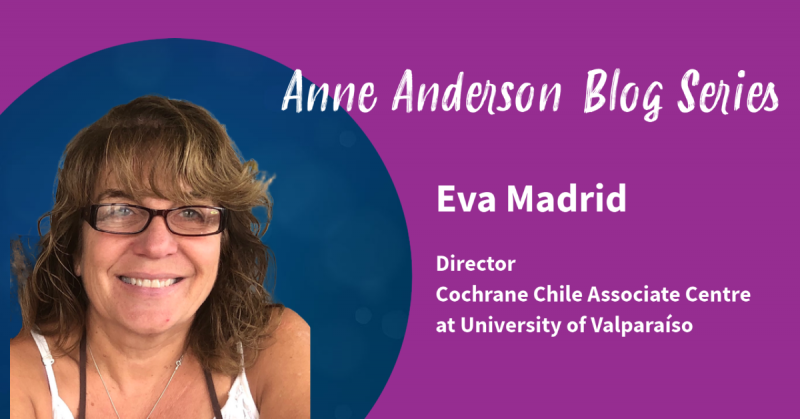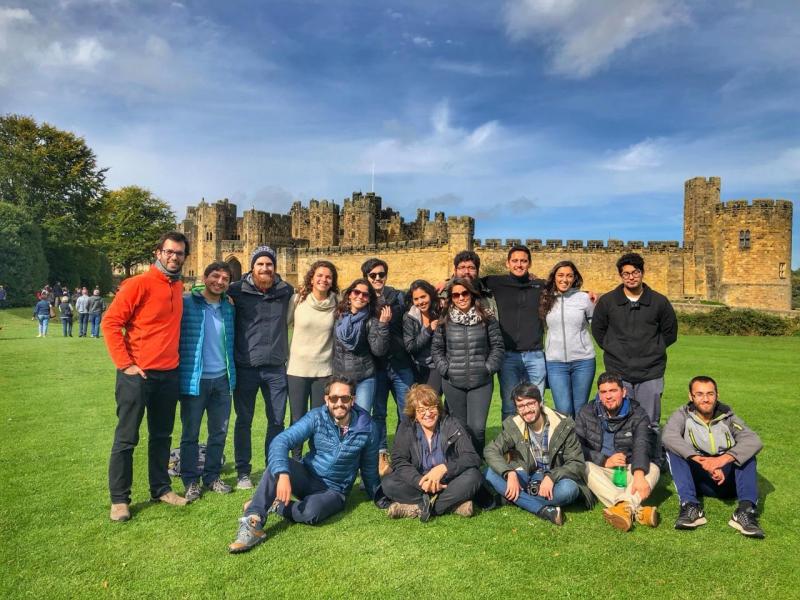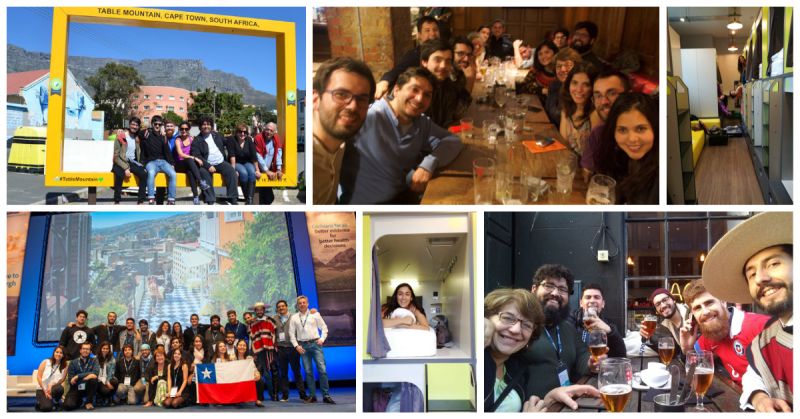
The Annual Anne Anderson Walk is a cherished annual social event in Cochrane, where attendees explore the Colloquium host-city by foot with a guide. Donations by participants are made to next year's Anne Anderson Award. Given current COVID-19 circumstances, the Cochrane community will be not be gathering for the Colloquium in 2021. However, we are holding a Virtual Anne Anderson Walk this year...join us as we share our walks from all over the world!
To accompany this Virtual Anne Anderson Walk, each week we will share blogs from women across Cochrane. Over the coming weeks, we will highlight Cochrane womens' accomplishments, honor their experience, and learn from them, while celebrating the breadth and depth of experience they bring to our global community.

Eva Madrid, MD, PhD, is a full professor and researcher at the School of Medicine of the University of Valparaíso in Chile. She is the director of the Interdisciplinary Centre for Health Studies and the director of the Cochrane Chile Associate Centre at University of Valparaíso. She has authored multiple Cochrane systematic reviews and she is currently working with the Sustainable Health Care Field on publishing a Cochrane Special Collection on ineffective or harmful interventions. She is one of the Associate Editors at the BMJ Evidence-Based Medicine Journal.
What impact has Cochrane had on your career?
I joined Cochrane in 2013 after visiting the Iberoamerican Group in Barcelona. At the time, I was the coordinator of the EBM course at the School of Medicine. After returning home and sharing about my experience in Spain, I was very lucky to discover that our Cochrane membership awakened the interest and enthusiasm of many young students and lecturers, who immediately began working on different ways to achieve the goals of Cochrane, such as producing high-quality information, providing evidence for decision makers, or enhancing knowledge about health care. After that, my life changed in many ways, because working with young scholars and students on topics of mutual interest is always rejuvenating and rewarding.
Can you tell us about one of your favourite memories from this time with Cochrane?
I treasure many wonderful memories, so it is difficult to decide. Probably the most exciting of them was the Colloquium held in Edinburgh: I was able to attend with 19 people from my centre, most of them medical students. We rented a huge room at a hostel and got to know each other very well, we shared hard work, walks, drinks, and conversations. My students had the opportunity to meet people they had only heard about or read about, and we all returned home happily and safe. We had the opportunity to share and announce the Chilean Colloquium which was planned to be held in 2019, and tell every Cochrane delegate about our culture.

Another excellent experience: Our Cochrane Associate Centre is the newest in Chile, and four years ago we began collaborative work with another "young" Cochrane Centre in Argentina (Hospital Italiano Associate Centre), which is led by Dr. Juan Franco. With the Argentine team, we have developed several publications, given three courses on systematic reviews for Cochrane authors, and we just won a grant from the Chilean government (FONDECYT 1212037) to develop Gap Maps for Clinical Evidence. This collaborative work has allowed our students to get to know each other and our clinicians to do research together, among other benefits.
What current challenges and opportunities do you see for women in science?
The world has changed, and women now have more opportunities in this changing world. In the case of Cochrane, being global, inclusive, and diverse has always been an important condition; we provide opportunities for wide participation and access, and this is reflected in Cochrane’s Strategy.
Women have been historically under-represented in positions of power and leadership, and science and health disciplines are not an exception to that. The intersectional approach has given light to how other variables, such as ethnicity, class, geography, disability, and sexual orientation interact with gender to enhance inequalities.
This is a recognised issue, but not solved so far. I believe now many institutions and organisations–Cochrane among them–have a very valuable opportunity to make public statements about diversity and to make active efforts to benefit women’s careers. Our challenge is to feel, ourselves, neither privileged nor disadvantaged.
What advice do you have for women scientists getting involved in the evidence-based medicine/decision-making community?
I would say the key attitude is teamwork, inclusion, and consistent work and effort.


